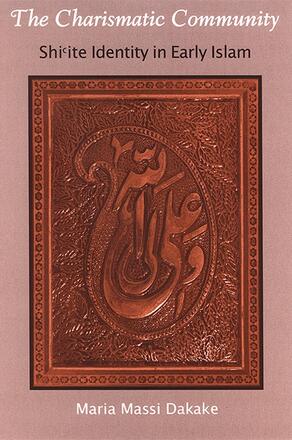
The Charismatic Community
Shiʿite Identity in Early Islam
Alternative formats available from:
Looks at the emergence of Shiism as a distinct communal identity within Islam.
Description
The Charismatic Community examines the rise and development of Shiite religious identity in early Islamic history, analyzing the complex historical and intellectual processes that shaped the sense of individual and communal religious vocation. The book reveals the profound and continually evolving connection between the spiritual ideals of the Shiite movement and the practical processes of community formation. Author Maria Massi Dakake traces the Quranic origins and early religious connotations of the concept of walayah and the role it played in shaping the sense of communal solidarity among followers of the first Shiite Imam, Ali b. Abi Talib. Dakake argues that walayah pertains not only to the charisma of the Shiite leadership and devotion to them, but also to solidarity and loyalty among the members of the community itself. She also looks at the ways in which doctrinal developments reflected and served the practical needs of the Shiite community, the establishment of identifiable boundaries and minimum requirements of communal membership, the meaning of women's affiliation and identification with the Shiite movement, and Shiite efforts to engender a more normative and less confrontational attitude toward the non-Shiite Muslim community.
Maria Massi Dakake is Associate Professor of Religious Studies at George Mason University.
Reviews
"In this richly documented study, Maria Dakake traces with great care and deep erudition the nuances in the pronouncements recorded on behalf of the earliest voices of the Shiites, such as they survive, principally, but not exclusively, in Shiite hadith literature … Dakake's reconstruction is as convincing as it is thoroughly and thoughtfully based on a close analysis of the sources." — Journal of the American Oriental Society
"The Charismatic Community is very well written, with clear, cogent arguments, no errors of Arabic transliteration to speak of, and only a few instances where one might quibble about translation. It constitutes a substantial contribution to our understanding of Shi'ism's early history and thought and stands out for the imaginative and intelligent use it makes of hadith as a window into social religious concepts current in early Islamic history." — American Journal of Islamic Social Sciences
"Dakake's book is a welcome addition to the scant number of works on classical Shiism. [Her] landmark book does much to fill in the gaps of existing scholarship and leaves the reader with a more comprehensive understanding of Shiism's formative period." — Philosophy of Religion
"The author admirably manages to highlight the major developments of early Shi>ite events and ideas within the general development of Islamic thought and history. This book enriches our knowledge and discussion of one of the most crucial periods of Muslim history." — Mahmoud M. Ayoub, author of The Qur'an and Its Interpreters, Volume II: The House of Imran